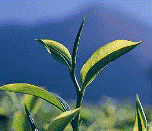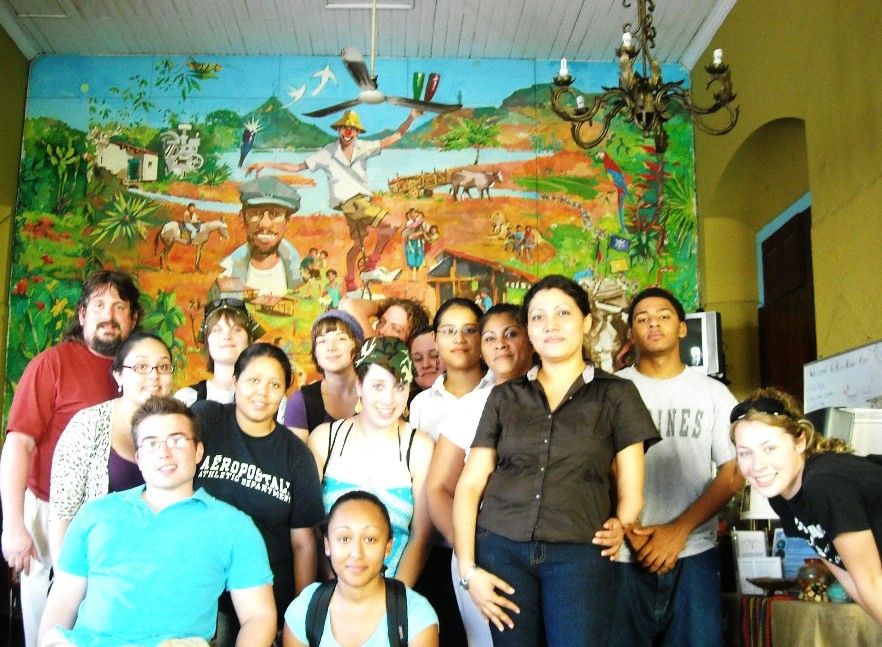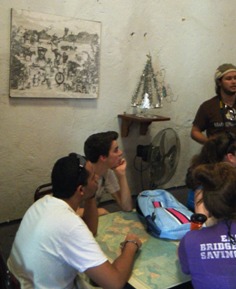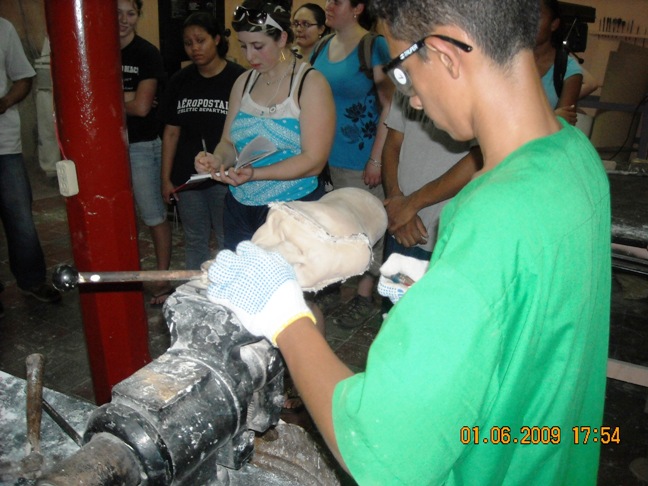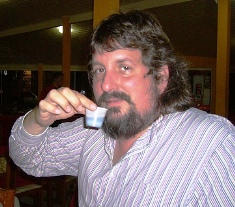| Thanks
to the many members
of the BSU community who have endorsed this
proposal. The diversity of these endorsements signals
the great potential of this project to change lives,
locally and globally. Although the original proposal
has not been accepted, and the Ben Linder name may
never be associated with this project, many aspects of
the proposal are still feasible, and work has already
begun on some of items. New ideas are still welcome! Each January, BSU's Nicaragua study tour includes visits to the Ben Linder Café in León, Casa Ben Linder in Managua, Ben Linder's actual projects in El Cuá and Bocay, where coffee farmers still benefit from his work, and Ben Linder's grave in Matagalpa, where he was laid to rest with great honor. |
|
|
Ben Linder gave his life for us,
that we might become partners in development, partners
in freedom, with the people of Central America. God
has blessed us by his sacrifice and his service. Atlanta Mayor and U.N.
Ambassador Andrew Young |
 |
| I remain
convinced that the strongest forces for social justice
remain within us as individuals, families and
communities. Let us draw from Ben Linder’s example the
inspiration to take the lead in promoting these
essential values in our societies. U.N. General Assembly
President Miguel d'Escoto Brockman |
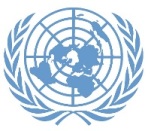 |
| The Benjamin
Linder Café is Bridgewater State University's
opportunity to create the best campus-based coffee
shop in the United States, while honoring the life of
someone who gave his life in the service of others.
Professor of Geography
James Hayes-Bohanan |
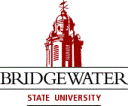 |
 Hear Dr. Hayes-Bohanan's brief
discussion of
Benjamin Linder's grave site, where he is buried with
honor in Nicaragua. Hear Dr. Hayes-Bohanan's brief
discussion of
Benjamin Linder's grave site, where he is buried with
honor in Nicaragua. |
|
|
|
Sting's song "Fragile" from the 1987 Nothing Like the Sun album is a tribute to Benjamin Linder. Tributes have also been recorded by at least two artists with Massachusetts roots, both of whom have generously offered their support of this initiative: Dean Stevens and Jeffry Steele. |
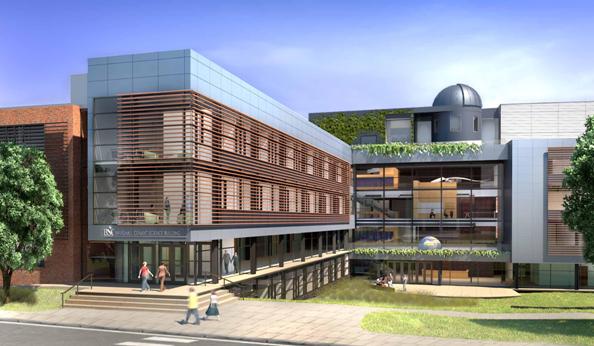 |
The inclusion of a café in
the new science building is congruent with findings
that such installations do serve to enhance learning
in science buildings, particularly where collaborative
learning models are being encouraged. Because of
growing attention to coffee at BSU, the café
presents a number of exciting opportunities to further
the university’s mission in a variety of interesting
ways. This is especially true given the desirability
of creating positive connections between the building
and the rest of the campus community. The Bridgewater State University community has shown a growing interest in many phases of the coffee industry in recent years. About 150 students have participated in study tours and seminars on coffee, covering everything from cultivation to the corner café. More than thirty of these students have had the privilege of visiting the original Ben Linder Café in Nicaragua and more than fifty have visited Ben Linder's grave site there. In addition, ten students have visited Ben's original projects in Bocay and El Cuá. This learning has led directly to the idea of a Science-Center Café that is truly focused on social and environmental sustainability. The ideas presented below have come
from the students themselves, people involved with Ben
Linder or the original cafe, and others who have heard
about the project and offered their help. Some of
these ideas are related directly to construction and
some are more about operations, but it would be useful
to consider all of them during the current planning
and construction phases. The People's
Market at UMass-Amherst and Deet's
Place at Virginia Tech offer two interesting
models for comparison. Both are campus-based food
outlets that provide rich learning experiences. |
| 1. Name:
The name “Ben Linder Café in Bridgewater” would
be appropriate, to honor the original
Ben Linder Café in León, Nicaragua. This name is a
appropriate for several reasons:
a. The original Ben Linder Café was started by a small team that includes BSU CAGS alumnus, Mr. Michael Lundquist. It is a model of self-help and community development for people overcoming extreme adversity, in this case civil war veterans and others who have been severally injured by land mines. Mr. Lundquist, CEO of the Polus Center for Social and Economic Development, is ready to assist, along with the other founder of the original Ben Linder, coffee importer and human-rights activist Dean Cycon, whose book is a required text for BSU coffee classes. b. Students from BSU have visited the original Ben Linder Café and will continue to do so annually. c. Ben Linder
gave his life in serving others. He was a civil
engineer working to provide rural electricity when he
became the first U.S. citizen killed by Contras during
their war on Nicaragua. He was a non-combatant, whose
story is told in The Death of Ben Linder. He
is buried with honor in Matagalpa, and his grave is a
regular stop on BSU study tours. d. In some ways, Ben Linder was simply an
idealistic young engineer who wanted to serve the
poor. Through his extraordinary dedication to the
people of Nicaragua, however, and because of his
untimely death, he became both a martyr and a symbol
of the radical application of progressive thinking. In
this way, he is in good company at Bridgewater State
University, which has hosted many guest speakers who
are cut from the same historical cloth, including
Francisco Ramirez, Joy Gordon, Maya Angelou, Alex
Kellington, James Howard Kunstler, Barbara Ehrenreich,
Junot Diaz, and Angela Davis. e. In fact, the cafe could serve as a
place to recognize such luminaries who visit our
campus, through a digital kiosk, similar to the Hall
of Black Achievement. 2. Moakley Connection: Coincidentally, Ben Linder was killed the day after the 60th birthday of Congressman Joe Moakley, for whom the BSU Moakley Center is named. Rep. Moakley is remembered not only for his support of instructional technology but also for his leadership on human rights in Latin America, particularly in Central America. It was outrage at Linder's death that brought the rest of Congress into line with Moakley's point of view regarding clandestine support for the Contras. A plaque commemorating Moakley's work on social justice throughout Latin America could be featured in the café. The Moakley Institute at Suffolk University has already agreed to assist in this part of the project. 3. Solar power: It is probably not feasible to put enough solar panels on the roof to support all of the building's electricity needs. It should be easy, however, to calculate the average electricity load of the café, install enough panels to cover that on an annual basis (that is, over-producing in the summer and under-producing in the winter) and educate café customers about these measures. 4. Garden:
Inside plantings in the vicinity of the café
should include Coffea arabica (that is, coffee
trees). They live ideally at 70 degrees F with 70
inches per year of precipitation; it should be
possible to approximate equivalent conditions near the
café. Between local botanical expertise and our
contacts with world-class organic coffee growers, such
a planting would be very manageable and very
interesting for customers and visitors of the
café. If any portable plantings are being
considered for the green roof area, coffee would be a
possibility there, too. After four years or so, we
could have a “crop” ready for some very small-scale
demonstrations of coffee processing. 5.
Water: Because the café would need a
dedicated supply of in-line, filtered water, it could
become a focal point of efforts to reduce the use of
bottled water building-wide and campus-wide.
Bottle-filling taps could be located immediately
adjacent to the café, along with educational
signage about the environmental and social costs of
bottled water. Privatized
water would not be needed in the building, setting
an example for the campus and the world.
6. Mural: Within the café, a mural similar to that in the original Ben Linder could be commissioned (with campus talent, of course). Students who have studied coffee could be part of the mural project, so that it emphasizes connections to the growers, the processors, and the land. Art students who have participated in the coffee courses would be ideal for instigating this part of the project, and the original muralist would very likely be available to help supervise the work. 7. Performing Arts:
Ben Linder was a clown and a juggling unicyclist. An
opening ceremony for the café could include a
similar act, drawing the performing arts into the
Science Building from the beginning. A professional
clown is among the students who have visited the
original Ben Linder Café in Nicaragua. 8. Organic:
The coffee would be certified organic, meaning that
the coffee would be grown under shade and without
toxic inputs or artificial nutrients. Inclusion of
this coffee would help to fulfill the environmentally
sustainable mission of the university; learning about
this certification process would compliment science
and conservation education, as the advantages and
challenges of organic cultivation can be studied. 9. Fair trade:
The coffee would be certified fair trade, fulfilling
the socially sustainable mission of the university;
learning about this certification process would
compliment global, social, and economic education in
the Science Building and university-wide. 10. Carbon-neutral: The coffee should be carbon-neutral, fulfilling the university’s climate commitment. Carbon-neutral coffee can be obtained from some roasters, but it may be preferable to identify and support tree-planting projects in one of the growing countries, in proportion to coffee sales (probably a penny or two per cup, to offset carbon-loading from the transportation, roasting, and brewing). 11. Giving back:
A percentage of sales should be directed to
development projects in coffeelands. These projects
could be chosen by customers through a voting system
similar to the one used at Blue State Coffee in
Providence. Each month, the management selects three
projects, and donations are made in proportion to
votes that customers cast with tokens that they
receive with each purchase. Selecting appropriate
projects would be a very worthwhile project for
students across disciplines. A similar system could be
developed here, with a student advisory panel
coordinating the selection of projects. 12. Global
Education: Featured coffees could change on a
monthly basis, with educational materials about source
regions provided by student volunteers under faculty
supervision. This is a natural extension of the
successful coffee
tastings that take place each April as part of
second-year seminars on coffee. 13.
Science on a Sphere: Coffee maps will be
developed for the Science
on a Sphere display in the new building, to be
distributed to the entire SoS national network. Each
of these maps -- showing crop yields, trade, the
timing of harvests, the historic spread of coffee, and
so on -- could be celebrated with an educational
launch party at the café. 14.
Nicaragua Nexus. The greater Boston area is
home to a number of groups -- some new and some dating
to the 1970s or earlier -- that have projects and
relationships in Nicaragua. These groups include
medical and religious projects and academic,
engineering, and development programs. The Ben Linder
Café could serve as a location for occasional
networking meetings among people from this region who
have a deep commitment to Nicaragua and its people. UPDATE:
Even though the cafe has not yet been approved, Nicaragua
Nexus has been formed, and did hold its first
meeting in the Conant Science &
Mathematics Center on the 25th anniversary of Ben
Linder's death. 15. Book Club.
Students have proposed a book club that would select
social-justice titles for monthly meetings to discuss
the books and activities that they might inspire. 16.
Decór. We have an opportunity to work
with an interior-design student from another
institution to incorporate the best in café
design as part of the planning of the Ben Linder
Café. 17. Student participation. The student-run People's Market at UMass-Amherst had been a model of student entrepreneursihp for over 30 years. To the maximum extent possible, given the overall organization of dining services at BSU, the Ben Linder Café can provide similar opportunities for our students. 18. Buying
local. The People's Market also supports
local vendors in the Amherst area. Several
participants in BSU's own Farmer's Market --
especially the nearby Rockin'
K Cafe -- would be strong candidates for
supplying snack and beverage items at the Ben Linder
Café. 19.
Fundraising wall. A cafe wall could be used
to raise money to support school- or clinic-building
projects or emergency-relief efforts, particularly in
coffee-growing areas. Real bricks could be sold in
advance of the cafe opening for a one-time fundraiser,
and "fake bricks" could be used for subsequent causes.
At Caffé
Graffiti in Boston's North End, a large
dry-erase board (white-board) is decorated with
"bricks" on which people can sign their names for a
small donation to a current cause. It would be great
to incorporate a similar feature in the Ben Linder
Cafe 20. 21.
Accessibility. The original Ben Linder Cafe
was founded specifically to provide meaningful
employment for persons with many different physical
abilities, and it is fulfilling that mission. Just as
that cafe exceeds local expectations for worker and
customer accessibility, so, too, can the Ben Linder
Cafe in Bridgewater. In addition to meeting the
requirements of the Americans with Disabilities Act,
the cafe can be a model of accessibility for the
entire campus. Periodic reviews of the cafe facilities
and practices can ensure that the cafe keeps up with
evolving standards and technologies for all facets of
accessibility for workers and customers. 22. Human
Rights Tribute. On April 27 and 28 each year,
the Ben Linder Cafe could be the site of a two-day
tribute to human rights, recognizing those who work
for human rights on the 27th (Congressman Moakley's
birthday) and those who perish in the cause of human
rights (on the anniversary of Ben Linder's death).
These tributes could be used to build a human-rights
honor roll that would be similar to the university's
very successful Hall
of Black Achievement. 23. External
Agglomeration Economies of Scale. If one
specialty coffee shop exists in a town, a second shop
may have difficulty getting established because of
competition. Once a third or fourth shop is
established, however, each additional shop can
actually benefit from being part of a community known
for its cafes. The Ben Linder Café could
actually serve as the tipping point. 24.
Internships. Whatever the management
structure of the cafe, it will provide many
opportunities for students for engaged student
learning that draws on lessons learned in their
courses. It is easy to imagine internships that would
improve the cafe and provide for student learning,
whether in sociology, management, geography, health,
music, art, biology, or any other field. 25. Roasting.
The Ben Linder Café in Bridgewater could become
the first university coffee shop in the country to
roast its own coffee. A five-pound roaster could be
located in a nearby laboratory in order to take
advantage of laboratory ventilation, and would require
about 40 square feet of floor space. Students or
employees could be mentored in roasting by master
roasters in the region. The roasting would be a
demonstration project in carbon-neutral coffee
processing, and it would add an important dimension to
the field-to-cup coffee education that already takes
place on campus. Moreover, the coffee aroma would be a
strong signifier of the campus as a nexus of coffee
appreciation and scholarship.The university currently
has the opportunity to obtain the same model roaster
that is in use in the original Ben Linder Café
in Nicaragua. 26. WiFi. The Café would provide a welcoming place for community members and collaborators from throughout New England to gather and work productively, by providing open access to a wireless internet server. It may be that a server separate from the secure campus server would be required. Free access is standard in high-quality coffee shops, and would be particularly useful for the mission of the BLC. 27. Special
Events. The BSU campus is increasingly
involved in international education, and frequently
receives visitors from countries that produce coffee
and tea. The Ben Linder Cafe could enable the campus
catering services to serve ethically-sourced coffee
and/or tea for special events connected to these
visits. 28. One Book
One Community. Each semester, members of the
Bridgewater town and university community select one
book for a shared reading experience, and a variety of
activities are organized around that book. For the
fall semester when the cafe is dedicated, the One
Book One Community selection could be Javatrekker
by Dean Cycon, one chapter of which describes the
formation of the Ben Linder Cafe in Leon. 29. Tunes. A
compact sound system controlled from the cafe could
provide atmospheric music for the immediate lobby
area, as well as recorded music appropriate to a
variety of cultural events hosted by the cafe. 30. Travel to
origin. Socially and environmentally
sustainable coffee involves making stronger
connections between producers and consumers. To
improve those connections, many coffee roasters and
retailers travel to production areas, often making
such travel available to front-line employees as a
reward program. The Ben Linder Cafe could help to
facilitate travel to origin for food-service workers
campus-wide, and elsewhere in the food contractor's
organization.. 31. |
CAFE SUPPORTERS BSU Departments, Clubs, and Offices Center for Sustainability Service Learning Advisory Board Center for Entrepreneurship Studies Watershed Access Laboratory STREAMS Latin American and Caribbean Studies Middle East Studies Asian Studies Bridgewater Growing Spaces Community Garden Southeast Massachusetts Global Education Center Second-Year Seminars Writing Across the Curriculum (WAC) Network Department of Biology Department of Chemistry Department of Foreign Languages Department of Geography Department of Movement Arts, Health Promotion, and Leisure Studies Department of Music Department of Special Education and Communication Disorders Department of Theater and Dance Department of Social Work Department of Sociology Clement C. Maxwell Library Social Justice League (Impact Award Winners) Free the Children, BSU Chapter Students for Ethical Eating Center for International Engagement Community Service Center Office of Undergraduate Research University and Community Partnerships The Ben Linder Cafe Would Advance BSU's Strategic Goals 1. Maximize the intensity, diversity and richness of teaching and learning relationships Students will learn with faculty members, vendors, and the broader community. 2. Promote leadership skills Students will work with food contractor to enhance the coffee business. 3. Foster the cultural, scientific, economic and intellectual capacity of the region The café will link visual and performing arts to the sciences and social sciences. It will also be a model for entrepreneurs in the region. 4. Increase global and cultural awareness Focal point for global and cross-cultural activities of the campus, building on the legacy of Rep. John J. Moakley’s work in Central America 5. Serve as an agent of social justice and sustainable practices Ben Linder gave his life in service to humanity. The café will celebrate and further that legacy. |
